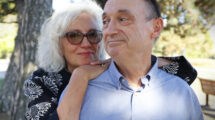By Iris Winston
Photos by Tim Skinner
For more than half a century, horticulturalist Ed Lawrence watched over other people’s gardens in person and via the radio waves. Now, enjoying retirement, he finally has some time to cultivate his own garden.
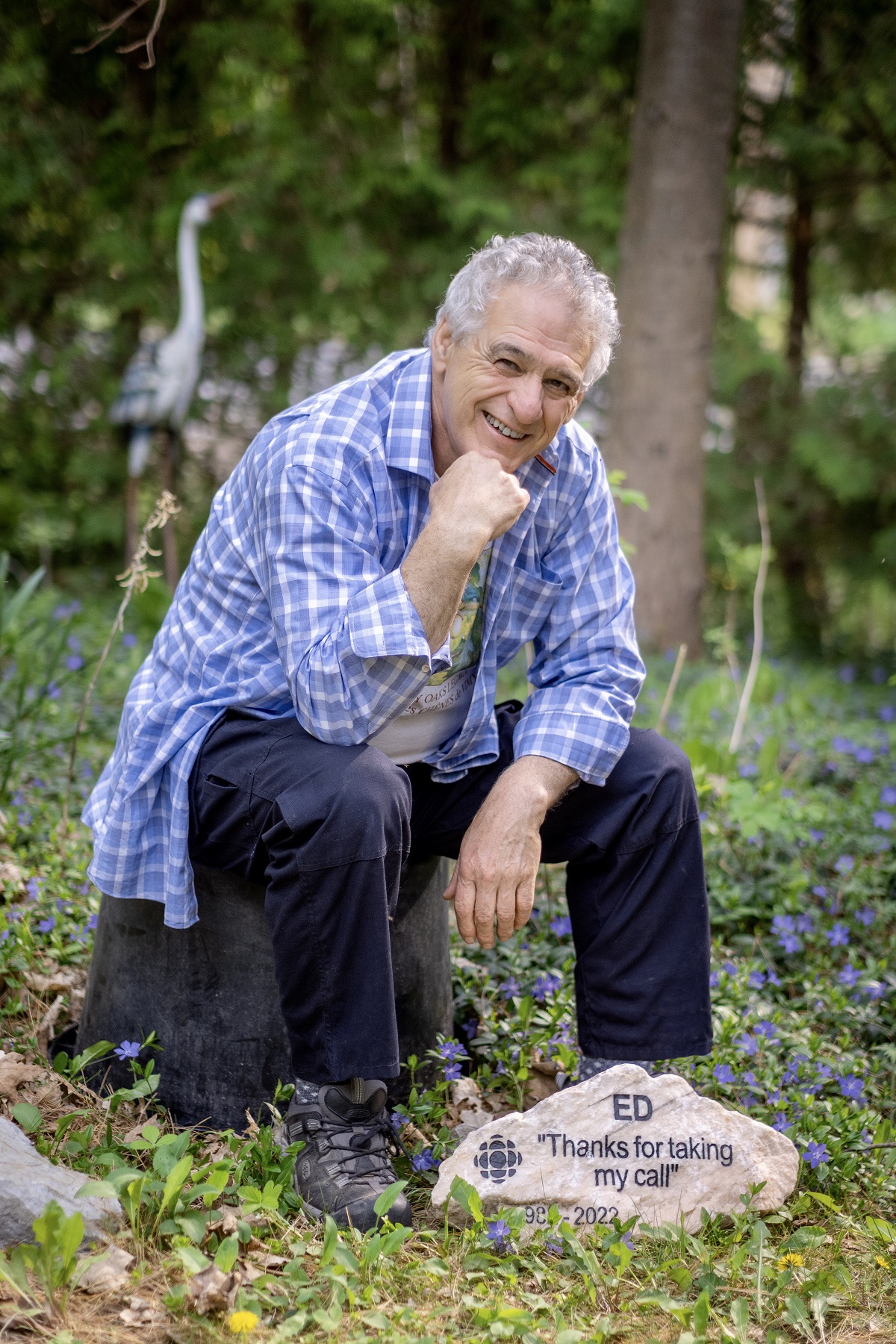
“Gardening is still my love,” he says. “If you’re a horticulturalist, it gets in your blood and it’s part of you. And it’s great to have the time and the inclination to do it now. I’m not doing it commercially any more but I am gardening for myself and any friends in trouble.”
Long regarded as the gardening guru of Ontario and beyond, his life changed on August 29, 2022, the day of his last broadcast on CBC Radio’s noon show, Ontario Today. Originally hired for a one-week pilot in 1982, Ed remained on the job for 40 years. Listeners across Ontario sought his advice on dealing with plant and tree issues on the call-in show. What was the best location for this tree? How much shade did that plant need to thrive? Was it possible to bring back a bush that had been attacked by bugs? Questions covered the gamut and, frequently, a plant being discussed had a special meaning for the caller. Ed’s responses, including requests for more details, were always knowledgeable, gentle and delivered in measured tones. He frequently asked for call-backs on how the plants under discussion were doing. It was clear that he cared about the callers, as well as the plants and their ailments.
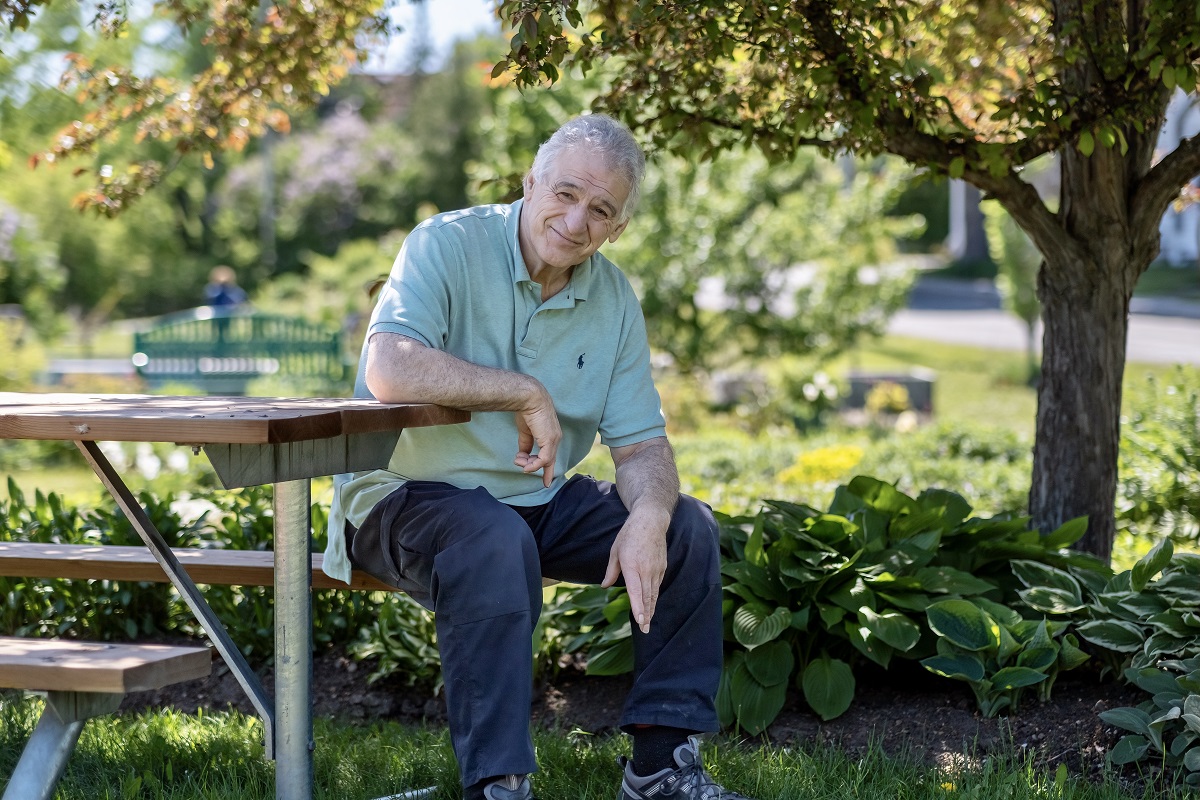
His advice was always helpful and always gratefully received. The regular Monday gardening segment of the show remained among the most popular and longest running of the week’s broadcasts for the four decades the dispensed words of wisdom on every aspect of horticulture.
“I loved the job and could have gone on longer,” says Ed, now in his early 70s. “But when do you stop? It also nagged at me to think of the number of young people not getting a chance because we old fogeys don’t leave. I found that a little onerous to carry around and it helped with my decision to stop.”
“Even so,” adds the Toronto-born gardening expert, who has lived in the Ottawa area since taking his first job in the National Capital Commission’s greenhouses. “I can say it was probably the hardest decision I’ve had to make in the last 20 or so years.”
The immediate result of retiring from his regular radio gig was that he went “from hero to zero in 24 hours,” he jokes, noting that sales of his book of gardening tips, Gardening Grief and Glory, (first published in 2006) also dropped significantly following his retirement from CBC.
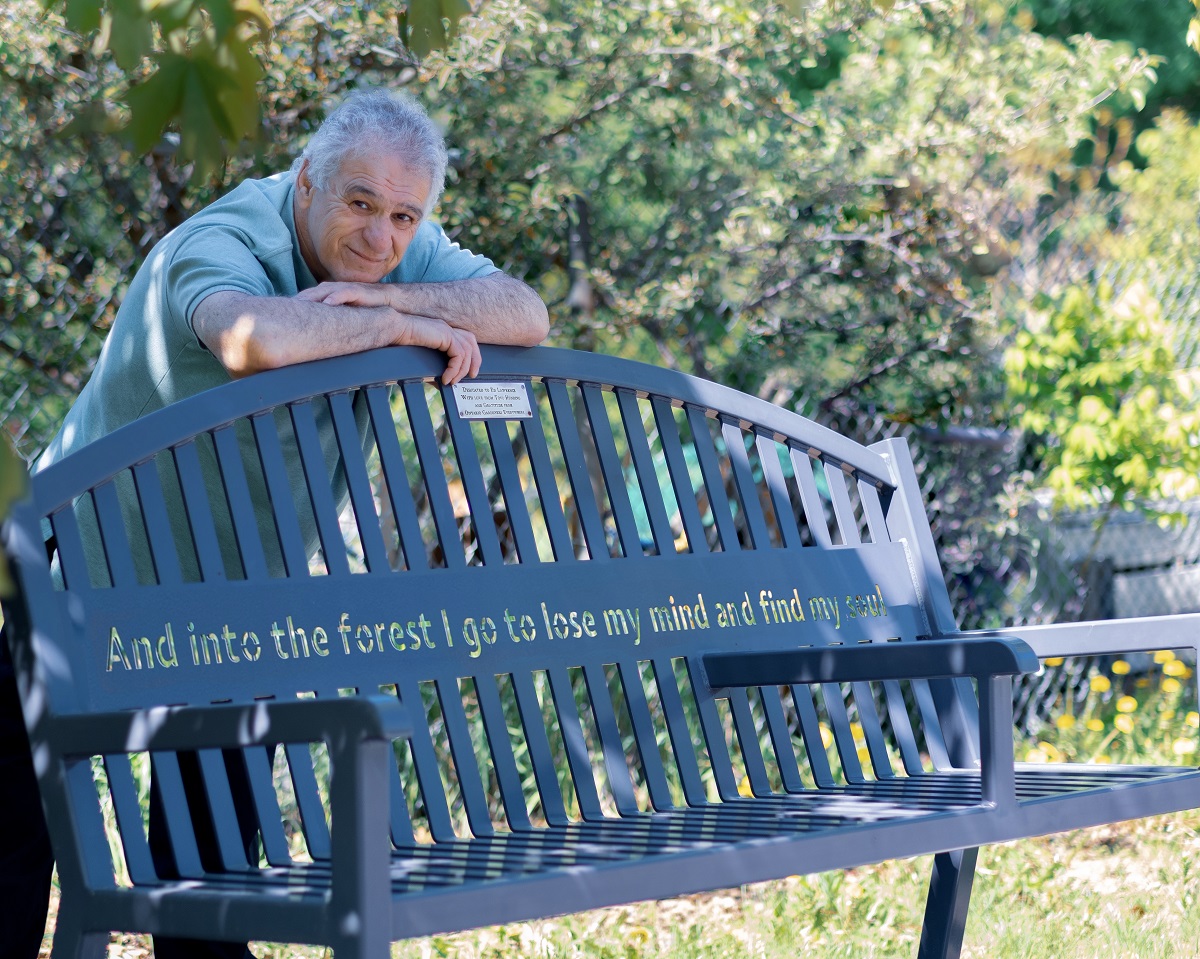
On the plus side, says Ed, who has been affected by attention deficit disorder since childhood, he is no longer tense on Sunday evenings as he worried about the types of questions that might be thrown at him.
“After all the years, I was still getting nervous about what I was going to talk about. You never knew what you were going to be asked. And, you never knew if you were going to be asked one more question as you turned around and walked out of the door. Now, the tension and anticipation aren’t there any more and that isn’t a bad thing as you get older.”
Even so, he says, the parting from CBC was much harder for him than retiring from the National Capital Commission and his long-held position as the head gardener of Canadian official residences. During his tenure as top horticulturalist at Rideau Hall, he worked with seven governors general, beginning during the tenure of Jules Leger (1974 to 1979) and ending the Rideau Hall connection during Michaelle Jean’s time in office (2005 to 2010).
As head gardener, Ed was not only responsible for overseeing the grounds and greenhouses of Rideau Hall, but also for the grounds of the six official residences under NCC control, including those of the prime minister and the leader of the opposition.
“Retiring from Rideau Hall was very different from retiring from CBC,” he says, explaining that his major reason for leaving in 2006 was that his wife, Kate, had been diagnosed with cancer and he wanted to be by her side as much as possible.
She died a few months later, before her 60th birthday. A combination of grief and health issues kept him off the job with the NCC a while longer.
“Then I was chomping at the bit to get back to work,” he says. “But I returned too soon and my health got worse again.”
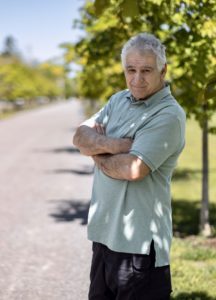 Eventually, after selling the farm in Clayton he had shared with Kate and then moving in with friends for a while, he finished his book and returned to the CBC, as always finding some solace in gardening or talking about horticulture.
Eventually, after selling the farm in Clayton he had shared with Kate and then moving in with friends for a while, he finished his book and returned to the CBC, as always finding some solace in gardening or talking about horticulture.
Five years later, friends asked him to help another acquaintance with her overgrown garden and trees. That particular gardening connection turned into the next stage of his life and the beginning of his relationship with his current partner, Tove, a bond that has flourished ever since.
His priorities at the moment—along with his life with Tove, their two 17-year-old cats and his home garden in Blakeney—-are an assortment of local projects. For example, he is involved in the Almonte Alameda, a community-driven project started in 2020. The goal of Alameda is to beautify the old Almonte railyards along what is now known as the Ottawa Valley Recreation Trail by raising funds to plant and care for more than 100 sugar maple trees.
(Sugar maples were the obvious choice, as Lanark County is the maple syrup capital of Ontario. In addition, as many contributors to the project point out, sugar maples “are robust, relatively disease-free and offer glorious colours in the fall.”)
Also on Ed’s list for 2023 are speaking engagements, such as being part of the season opening of the Carleton Place Horticultural Society, working with the Mississippi Madawaska Land Trust, having regular group breakfasts with other retirees and helping others in the region involved in horticultural pursuits.
On the immediately local front, he has made an agreement with the neighbour opposite to plant some daffodil bulbs on his property as well as his own, so that they can both enjoy seeing the yellow blooms as they leave their homes. However, he says, no tulips will grace the two properties. There is little point in planting tulips, he explains, because the local deer enjoy eating the bulbs too much.
“The degree of my busyness is my choice and that’s good,” he says. “A friend made me promise to wait six months after retiring before deciding to do anything. He told me I’d find all sorts of things at my doorstep and the offers have kept coming so far. Now, I feel I’m ready to do more.”
Initially, he was just going to go fishing more often. Then he took up a local exercise program geared to seniors. It’s particularly effective for someone whose knees are feeling the effects of years of gardening and involvement in sports, he says. He also continues to attend horticultural and personal events.
“A number of local programs are set up around physical and spiritual wellness,” he says. “I intend to look at them all.”
“I will be doing things locally and to support my community,” continues Ed, “but I won’t go travelling across the country or province any more. I like that I have more choices now and that I can take my time. I am determined to try new things, too. We’re not given a best-before or expiry date, so I want to get it all in now, while I still can. Right now, I’m still walking on two legs, but I could reach the three-legged stage (with a cane) any time. Then what? I didn’t follow all the financial advice about saving for the future over the years. There’s a lot to be said for that, but there’s also a lot to be said for being present in the here and now and living in the present.”
And, with that, Ed Lawrence is ready to return to cultivating his garden, where planting and pruning are keeping him busy in the present.
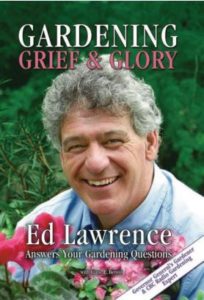
Gardening Grief and Glory
By Ed Lawrence and Liane Elizabeth Benoit
Originally published by Tatlock Woods Publishing, November 2006, now in its third edition.
Answering questions on everything from pruning trees to ensuring that a Christmas cactus blooms in December, the book is organized on a seasonal basis. The 1000-plus entries between acidic soil and zinnias are in question-and-answer format and are focused on giving practical advice, as was Ed Lawrence’s voice on CBC Radio during his 40-year broadcasting career.





